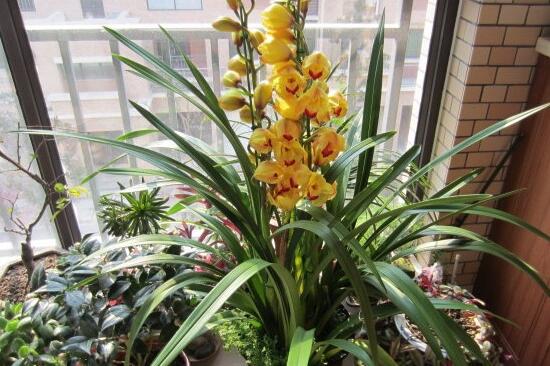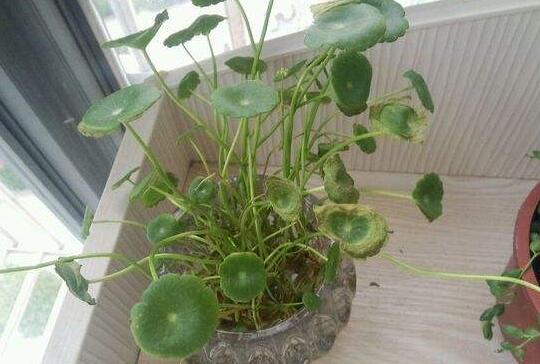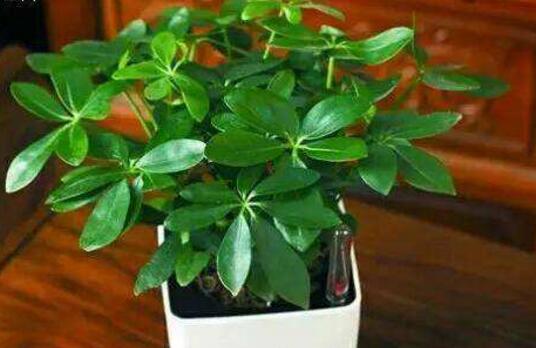How to raise Cymbidium, the breeding methods and precautions / water of Cymbidium should be watered more.
Cymbidium cymbidium, friends who have seen it should be impressed. It has huge flowers and bright colors, so people like it when they see it. In life, many people want Cymbidium, but many of them are novice, so how to raise Cymbidium is a question that everyone wants to know. In this regard, the editor carefully sorted out the breeding methods and matters needing attention of Cymbidium, very detailed, friends who want to raise must have a look.
First, how to raise Cymbidium in potted plants and understand their habits

Indoor cultivation of Cymbidium is not compared to outdoor, its growth environment needs us to create, so how to raise Cymbidium at home, we should first understand its growth habits, and then try our best to satisfy it. In this regard, the editor from the soil, light, water and fertilizer and other methods to bring you Cymbidium culture methods and points for attention, we continue to look down.
2. Culture methods and matters needing attention of Cymbidium
1. Selection of basin soil
When you raise Cymbidium indoors, you have to choose potted soil first. Of course, many people buy potted plants directly, but if they want Cymbidium to grow well, they should make their own flowerpots and soil. The specific selection of basin soil is as follows:
Soil: according to the growth habits of Cymbidium, we should choose loose, permeable and well-drained soil. The editor recommends the use of moss, carbon shavings, fern roots, charcoal, bark, broken bricks and other mixed soil, it is best not to use ordinary culture soil.
Flowerpot: the pot for planting Cymbidium should be a pottery flowerpot with four walls and a diameter of 15 cm. 3-4 plants can be planted in each pot.
2. Lighting
How to raise Cymbidium, the light is indispensable. Compared with other orchids, Cymbidium prefers light, but can not be exposed to direct sunlight, so when breeding indoors, the flowerpot should be placed in a place of bright scattered light.
Note: Cymbidium cymbidium bogey strong light, in spring and autumn should be shaded by 40% to 50%, summer shade by 60%, and after late autumn should be more light, in order to facilitate the flowering of Cymbidium.
3. Temperature
In the culture method of Cymbidium, temperature is also very important. It is understood that Cymbidium likes a warm environment, and the indoor temperature should be kept at 15-25 ℃, which is beneficial to plant growth.
Note: once the temperature is lower than 10 ℃ or higher than 35 ℃, Cymbidium will go into dormancy. For Cymbidium to survive the winter safely, it is best to adjust the room to more than 10 ℃.
4. Watering
Cymbidium likes the humid environment, so it requires more water, especially in summer, not only sufficient water, 2-3 times a day, but also need to spray water to the leaves, which can not only prevent the emergence of yellow leaves, but also effectively cool down, and maintain good ventilation at the same time.
Note: when watering Cymbidium, we should grasp the principle of "dry and thorough watering". Once underwatered, the inflated pseudobulbs will shrink and affect normal growth. In addition, watering should be reduced during flowering, otherwise the flowers will appear brown spots.
5. Fertilization
After watering, let's talk about fertilization. It is also a key link in the breeding method of Cymbidium. It is understood that Cymbidium likes to fertilize, fertilizing once every 5-7 days in spring and summer, once every 10-15 days in autumn, and stopping fertilization in winter.
Note: in the seedling stage and low temperature season, should apply little or no organic fertilizer; in addition, do not let the plant lack of nutrients, otherwise it is easy to appear Cymbidium leaves yellowing or even shedding.
6. Pest control
If it is not maintained strictly according to the culture method of Cymbidium in the process of culture, Cymbidium is vulnerable to diseases and insect pests. Among them, the diseases are: leaf blight, anthrax, soft rot, leaf spot, insect pests are: aphids, red spiders, shell insects and so on. Once found, we should spray control, specific spray what medicine, in the disease and pest control of Cymbidium has a detailed introduction, here will not say more.
7. The method of going up and changing the basin
In the process of raising Cymbidium, in addition to paying attention to diseases and insect pests, we should also change its pots at the right time. When the plant is too large, it should be changed or put on the pot (after flowering or when the new buds are just sprouting in early spring) to promote growth and flowering.
The method of changing the pot: ① poured out the Cymbidium from the old pot, cut off the rotten roots and yellow leaves, and washed the old soil; ② put a layer of broken tiles or bricks at the bottom of the new basin to facilitate drainage and ventilation; ③ put the treated Cymbidium plant into the pot, filled with new matrix, compacted with hands and watered thoroughly.
How to raise Cymbidium, the breeding methods and matters needing attention of Cymbidium
Friends who often visit the flower market should know that there is a kind of flower that looks very attractive from afar and is also very popular with everyone, and that is Cymbidium. Cymbidium has long green leaves, rough flower posture, bold and magnificent, it has the delicate and elegant fragrance of the national orchid, is very popular in the international flower market, and is deeply loved by flower lovers. However, do you know how to raise Cymbidium, the breeding methods and precautions of Cymbidium? Today, the editor will introduce to you:
Breeding methods and matters needing attention of Cymbidium: 1. Propagation: the method of ramet propagation is often used, and the ramet time is longer than that after the plant blossoms, and before the new buds grow, this short dormancy period is carried out. It should be properly dried before ramet and operated when the roots are slightly whitish and soft. Those with strong growth usually split once in 2-3 years, and each clump of orchid seedlings should have 2-3 pseudobulbs, one of which must be newly formed in the previous year.
2. Temperature: it likes strong light, and the suitable temperature for growth is 10 ℃ ~ 25 ℃. It should be cultured in a greenhouse with low temperature in winter.
3, humidity: it likes to be wet very much, but it should pay attention to ventilation, otherwise it is easy to get anthracnose, the humidity of small seedlings should be 80%, and the humidity of medium and large seedlings should be 60% to 85%.
4. Fertilization: the ratio of nitrogen, phosphorus and potassium is 1:1:1 in the growing period, 1:2:2 to 3 in the flowering stage, and the pH value of the fertilizer solution is 5.86.2.
5. Watering: sprinkler irrigation is usually used in production, once a day in May and September, twice a day from July to August, and every 2 to 3 days from October to April of the following year. The watering times should be adjusted at any time according to the size of seedlings and weather conditions.
Through the above editor's sharing, I believe you know more about how to raise Cymbidium and the breeding methods and matters needing attention of Cymbidium. I also hope that the editor's sharing will be of some help to you!
How to raise Cymbidium in Jiuzi Culture methods and points for attention of Cymbidium
Cymbidium grandiflora is a stranger to many people and doesn't know what it is. Today, I'm going to share with you the breeding methods and matters needing attention of Cymbidium.
The culture methods of Cymbidium are as follows:
1. Culture medium: in the cultivation of Cymbidium, some culture substrates with larger particles should be selected, generally vermiculite, coconut shavings, broken bricks, pottery-fired soil and water moss can be used to grow.
2. Watering: watering once in 3-5 days in winter, the basin soil is better on the dry side; because the temperature is lower at this time, the lower water content of plant cells will be more beneficial to the overwintering of Cymbidium. From the beginning of spring, the amount of water should be gradually increased, and once a day in early summer until autumn, and then gradually decreased.
3. Lighting: compared with the traditional national orchid, Cymbidium cymbidium has higher requirements for light. The lack of light will lead to slender plants and weak disease resistance, but also significantly affect the reproductive growth of Cymbidium; shading 20%-30% in spring and 40%-50% in summer, and the light can begin to increase during the flower bud growth period from late September to December. Shading 50% to 60% in midsummer, and more sunshine in autumn, which is conducive to flower bud formation and differentiation. In greenhouse, Cymbidium is planted in rainy and snowy days in winter, such as increasing auxiliary light, which is very beneficial to flowering.
4. Temperature: Cymbidium should move into the greenhouse to survive the winter in winter and keep the temperature above 5-8 ℃.
5. Fertilization: the cultivation of Cymbidium is mainly based on non-soil substrate and fertilizer efficiency, so the application of fertilizer is very important in the cultivation of Cymbidium. Generally, fertilizers with more nitrogen, such as urea, should be selected from March to September, and more kinds of phosphorus and potassium, such as potassium dihydrogen phosphate, should be applied in October. Special fertilizer for orchids can also be used. The concentration is generally 0.1%-0.3%. At the same time, topdressing should be applied twice a month from April to May after flowering and from September to October in autumn. the kinds of topdressing can be mainly composed of fresh cake fertilizer, bone meal, fish meal, grass retting water and so on.
Points for attention in the culture of Cymbidium in Jiuzi:
1. Although Cymbidium is more hardy, it is unbearable at lower temperature. May be hit by cold air on the way home, causing damage to leaves or flowers.
2. It is recommended not to water too much and too often, but to water with clear water close to room temperature, do not water fertilizer during flowering, and then apply fertilizer after flowering, otherwise the flowering period will be shortened and fertilizer damage will occur if you use fertilizer improperly.
3. Cymbidium cymbidium is afraid of strong light, and scattered light is generally better. too weak light will also cause some diseases of its poor growth. generally, indoor appreciation is based on the indoor position to determine the location of flowers. but at this time, we should also pay attention to whether the flowers adapt to the small environment of this location.
- Prev

How to do with the dry edge of the leaves? learn four tricks to make the leaves more green.
The edge of the leaf of Rabdosia angustifolia is usually emerald green, and there will be irregular sawtooth, which has been introduced in detail in the difference between Rabdosia angustifolia and Rabdosia angustifolia, but some flower friends have encountered the phenomenon of drying up the edge of the leaves raised by themselves. it not only affects the beauty, but also gives people a headache.
- Next

How to raise duck foot wood, the breeding method and matters needing attention / light should be suitable.
Duck foot wood is native to Guangdong, South America and other places in China. Because of its strong adaptability and many functions, more and more people raise it. Although this plant is easy to feed, it still needs to master certain methods if you want to raise it well.
Related
- Fuxing push coffee new agricultural production and marketing class: lack of small-scale processing plants
- Jujube rice field leisure farm deep ploughing Yilan for five years to create a space for organic food and play
- Nongyu Farm-A trial of organic papaya for brave women with advanced technology
- Four points for attention in the prevention and control of diseases and insect pests of edible fungi
- How to add nutrient solution to Edible Fungi
- Is there any good way to control edible fungus mites?
- Open Inoculation Technology of Edible Fungi
- Is there any clever way to use fertilizer for edible fungus in winter?
- What agents are used to kill the pathogens of edible fungi in the mushroom shed?
- Rapid drying of Edible Fungi

